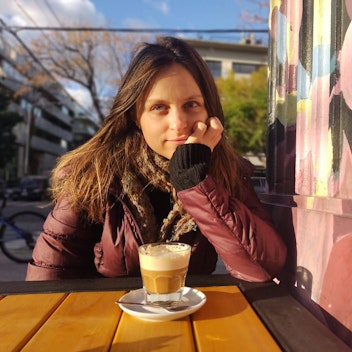
The Quest for Independence in Catalonia: Between the Rule of Law and the Principle of Democracy
 Alberto López Basaguren
Alberto López Basaguren
South Tyrol, an Autonomous province located in the north of Italy, is among Europe’s wealthiest regions, and the richest in Italy. Bosnia Herzegovina, a former Yugoslav republic, protagonist of one of the most disastrous wars of the modern era, is currently ranked among the world’s ‘hybrid regimes’ and captured-states.
At a first glance, these two societies have nothing in common. And yet, a closer look actually reveals they do share a few (crucial) things:
Ranging from people in/and from mixed marriages, members of communities not involved in the conflict, politically irrelevant groups, as well as those who choose to avoid the existing identity labelling for ideological reasons, ‘Others’ constitute a heterogeneous group whose members are not explicitly included in the consociational system. As a result, they face a number of obstacles, both formal and informal, hence they too seek to have at least a similar share of opportunities, recognition, and representation as the main groups’ members. Nevertheless, when confronted with the choice of either adapting to the ethnic divide or remaining aside from it and challenging it, they are rarely able to break out of the ‘ethnic logic’.
The South Tyrolean model of ‘complex power-sharing’ protects the region’s linguistic minorities through the implementation of a set of mechanisms, among which stands the ethnic quota system. The tool used to identify quota size is the ‘declaration of linguistic belonging/aggregation’ which allows the size of each group to be determined and, in a second step, calculates the proportions for the ethnic quotas to which a set of rights and benefits are connected. From a citizen’s perspective, the declaration allows to stand for public office; receive subsidies and financial support and to be employed in the public administration. Although functional to its aim, this system based on ethnic proportionality is however not perfect, and potentially excludes all bearers of ‘non-standard and not foreseen identities’. While, on the one hand, since 1991 citizens have had the possibility to declare themselves as ‘Others’, on the other, they are compelled to ‘aggregate’ with one of the three ethno-linguistic groups if they want to participate in the quota system. Failing or refusing to provide a linguistic declaration, or aggregating to one of the ethno-linguistic groups, automatically causes exclusion from the proportional system and the renunciation of the rights and benefits which can only be enjoyed through it. Therefore, from an institutional perspective, citizens potentially ‘Others’ are highly incentivised to align to the ethnic governance. Further evidence in this direction is the fact that the declaration of linguistic belonging does not have to correspond to ‘reality’, there are no checks, sanctions, or punishments which could impede ‘false declarations’ for opportunistic reasons.
According to its constitution, Bosnian Serbs, Bosnian Croats, and Bosniaks are the Constituent Peoples of Bosnia Herzegovina, along with its ‘Others’. This latter umbrella category includes both the members of the 17 minorities living in the Bosnian Herzegovinian territory, as well as anyone who cannot or does not want to identify with the main ethnonational groups. In the light of its ethnic heterogeneity as well as conflicting past, power-sharing mechanisms based on ethnic and ethno-territorial criteria have been implemented post-war, preventing the supremacy of one group over others while assuring their participation and representation. Ethnic quotas also apply in Bosnia Herzegovina but, contrary to South Tyrol, their application is often informal, and the modalities determining one’s own (alleged) group membership are shady and often based on assumptions about people’s family names. Moreover, while in South Tyrol ‘Others’ are not part of the power-sharing mechanisms, in Bosnia Herzegovina they are prevented from running for certain public offices while in others they do have a reserved seat. Overall, if on the one hand the Bosnian institutional and political systems can be considered ethnic and exclusive, on the other, the absence of checks and punishments - as in South Tyrol, as well as the often informal character of the ethnic quotas’ implementation, allow and incentivise these citizens to conform to the ethnic scaffolding either by lying and/or switching identity according to the need, in order to enjoy rights and benefits allocated according to ethnic criteria.
When confronted with the choice of either adapting to the ethnic divide or remaining out of it, the factors concurring to citizens ‘Others’’ final choice are multiple and subjective. Yet in both South Tyrol and Bosnia Herzegovina, to be and/or declare oneself as ‘Other’ is pragmatically disadvantaging and, whenever possible, citizens opt to conform and go along with the status quo. Nonetheless, while in Bosnia Herzegovina it is particularly the generalised and cross-ethnic economic difficulties, widespread corruption and clientelism, the factors incentivising ‘opportunistic alignment’, making it the optimal and most practiced identity choice, in South Tyrol it is the opposite factors: cross-ethnic socio-economic wealth, resources abundance, and institutional smooth functioning. Therefore, while all those belonging to none or more than one of the major societal segments, or are irresolute to the question, can feel discriminated against or excluded in virtue of their origins and belongings, it is also true they are allowed and even encouraged by the system to align to the ethnic divide, choosing (sub)optimal collective identities in order to take advantage of the opportunities offered by the consociational ethnic mechanisms.
From a country-specific perspective, the ‘identity choices’ performed by citizens potentially ‘Others’ tell us that both the South Tyrol and Bosnia Herzegovina consociation have, in spite of their ethnic character, succeeded in gaining legitimacy while discouraging their abandonment. The citizens of these consociations have been furnished with good enough reasons to align to the ethnic governance, use ethnic collective identities as proxies to enter the system and benefit from it while leaving it unchanged. These consociations have, thus, succeeded in satisfying their most important function: a psychological one - making clear that the groups composing their respective plural societies are still not ready to abandon the safety net provided by ethnic quotas and mechanisms. From a broader perspective, the behaviour of ‘Others’ does show that the exclusion in principle suffered by some citizens due to consociations’ alleged rigidity is often maintained by them: the possibility of being able to give ‘false’ identity declarations, the absence of checks and punishments, as well as the adoption of occasional and ad hoc solutions as in South Tyrol, or the often informal and personalised character of the quotas’ implementation as in Bosnia Herzegovina, allow citizens in principle ‘not fitting into the system’ to elude rigidity and ethnic exclusivism at the sole condition of alignment. We might, therefore, say that citizens potentially ‘Others’ play a key - and far from marginal - role, as via ‘opportunistic alignment’ they progressively decrease the socio-political bases for the very existence of the category Others, legitimising and maintaining in place (apparently) ethnically exclusive and rigid systems.

This content is licensed under a Creative Commons Attribution 4.0 International license.

 Alberto López Basaguren
Alberto López Basaguren
 Elisabeth Möhle
Elisabeth Möhle
 Núria González Campañá
Núria González Campañá